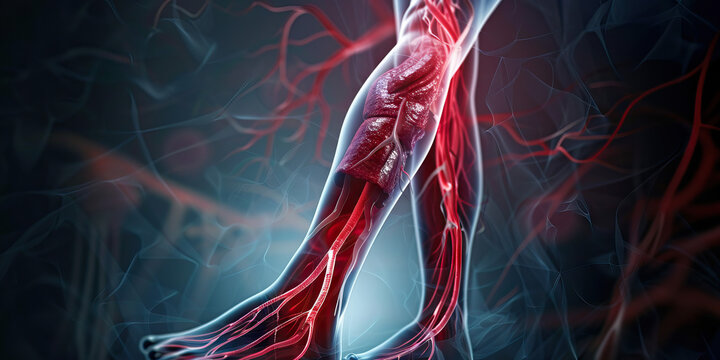Deep vein thrombosis
Deep vein thrombosis (DVT) is a condition where a blood clot forms in a vein, typically in the leg, and can lead to serious health complications if left untreated. Here’s a summary of key aspects:
Symptoms of DVT:
- Swelling: Usually in the leg, particularly the back of the leg.
- Pain: Throbbing or tenderness, often in the calf or thigh, worse when standing or walking.
- Warm skin around the affected area.
- Discoloration: Red or darkened skin near the clot.
- Swollen veins: Veins may become hard or painful to touch.
When to Seek Medical Advice:
- Emergency: Call 999 or go to A&E if you experience DVT symptoms alongside breathlessness or chest pain.
- Non-emergency: Call 111 or see your GP if you suspect you have DVT.
Risk Factors for DVT:
- Age: Increased risk with age.
- Inactivity: Prolonged immobility, e.g., long journeys or after surgery.
- Medical history: Previous clots, family history, pregnancy, contraceptive use, obesity, smoking, cancer, etc.
- Injuries or conditions: Damaged blood vessels or varicose veins.
Diagnosis:
- Blood tests: D dimer test.
- Ultrasound: To check blood flow.
- Venogram: X-ray using dye to locate the clot.
Treatment Options:
- Anticoagulants (Blood Thinners): Medicines like warfarin or apixaban to prevent clot formation.
- Compression Socks: To improve circulation and reduce symptoms.
- Surgery: Rare cases may require a vena cava filter to prevent clots.
- Leg Elevation: Rest with legs raised to relieve pressure.
Prevention Tips:
- Lifestyle changes: Stay active, maintain a healthy weight, avoid smoking and excessive alcohol.
- Hospital precautions: Use compression socks and anticoagulants if advised.
- Long-distance travel: Stay hydrated, move regularly, and use leg exercises.
Complications of DVT:
- Pulmonary Embolism: A potentially life-threatening condition where a clot travels to the lungs.
- Post-thrombotic Syndrome: Long-term pain and swelling.
If you suspect DVT or have any concerning symptoms, seeking prompt medical advice is crucial.







